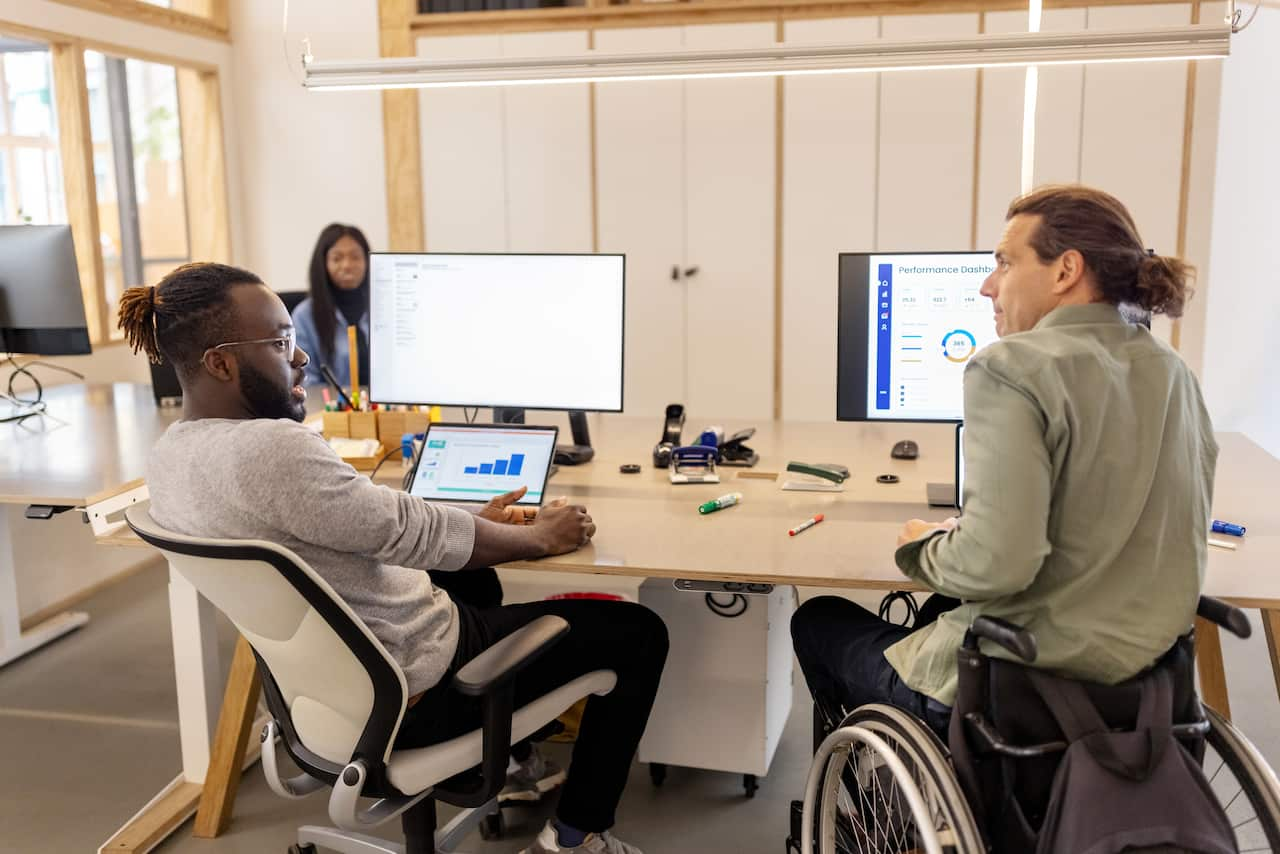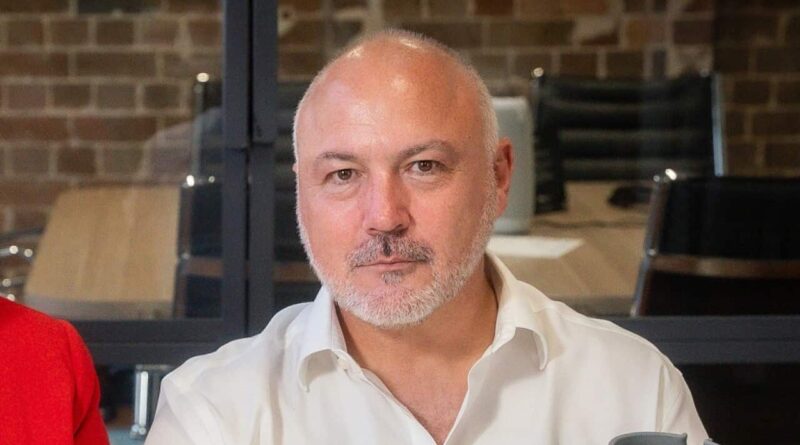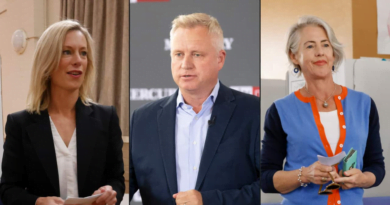Key Points
- Ross Chaplin is one of “very few” Australians with a disability who hold a senior position.
- Advocates say a lack of understanding about people’s capabilities is partly to blame for the under-representation.
- Seven recipients of a targeted scholarship for leaders with a disability have now landed roles on boards.
Ross Chaplin works as an associate director at an independent tenant advisory company in central Sydney.
He also lives with a disability.
Chaplin is one of very few Australians with a disability who hold a senior role.
While more than two million people in Australia of working age have a disability, , according to the Australian Bureau of Statistics.
“Very few” of those reach board level, enter politics or hold other senior roles according to Australian Disability Network CEO Corene Strauss.
“The lack of representation of senior leaders at board level and in management is predominantly a fear factor and a . It’s the fear of cost, it’s the fear of liability.”
Through a scholarship program designed to help leaders with disability gain board positions, Chaplin has expanded his skills and knowledge around governance and will expand his leadership roles in 2024.
Chaplin is an expert in his field
At the tenant advisory company Franklin Shanks, Chaplin works with not-for-profit and NDIS providers looking “at their property function” to create savings for them.
He said decades of lived experience with a disability is a big part of his specialist success in the property field.
“I have a particular empathy with the not-for-profit organisations because I am what I refer to as a club member. This is my people, this is my community.”
Ross Chaplin not only brings years of experience working in the field to his leadership roles but also lived experience with accessibility issues. Source: Getty / Luis Alvarez
The 52-year-old moves quickly around the city office using crutches or ‘sticks’ to support himself, due to limited strength in his legs following a viral infection as a child
“Guillain-Barré syndrome left me hemiplegic, which means that my left arm is about 50 per cent strength,” Chaplin said.
“My right leg is about 2 per cent strength, my left leg is about 20 per cent strength, but my right arm is about 200 per cent strength. I’ve just evolved for what I needed to do to get around on sticks.”
Improving access to public spaces is his job and the willingness of his current employer to adapt the workplace for easier access has helped Chaplin remain employed there.
“Small measures but with great impact for me. The door closer on the bathroom door has been taken off. Non-slip mats have been put down for me. I use my own car. I’m allowed to put a lot of expenses on a corporate card because they need me to be out there in front of people, which is where I’m most effective.”
Franklin Shanks CEO Mike Franklin said adapting the office was a small price to pay to retain a loyal and hard-working specialist.
“He’s a great employee and one of the greatest things about Ross: he’s very forward-thinking.
“There’s no doubt that his experience over the years has opened up the ability for us to advise more fully,” Franklin said.
AICD scholarship program helps people get on board(s)
Chaplin is one of 37 people to have completed a scholarship program delivered by the Australian Disability Network and the Australian Institute of Company Directors (AICD).
The scholarship aims to assist more people with a disability gain board positions.
Seven of the participants, including Chaplin, have gained a board role since completing the program.
“I sit on two access advisory committees, I sit on a property investment committee, which is a paid position with a not-for-profit and I’m going onto a board position in a not-for-profit in the Blue Mountains,” he said.
“Because I now associate with boards and very senior people within councils, I’m regarded. I’m sought out. I am encouraged.
“There is endless data to say that a diversified board is a far more effective board, and if there’s a diversified board, then there’s going to be a far greater impetus and importance placed upon having a diversified workplace,” Chaplin said.
“If you have an environment that is accessible to everybody, literally nobody has a disability!”
Better understanding leads to better access
Strauss said improving diversity on boards would have wide-ranging benefits for the whole community.
“If boards appoint a person with disability on their boards, they are then understanding the importance of accessibility and inclusion right from the top down.
“It means that they’re understanding what’s happening at customer level and what barriers are they putting in place with their employees?”
As well as teaching leaders with a disability about governance principles, the scholarship process involves having directors mentor a person with a disability, which provides greater insight into how to engage with people with disability.






